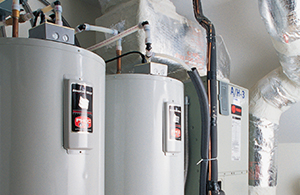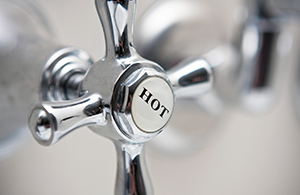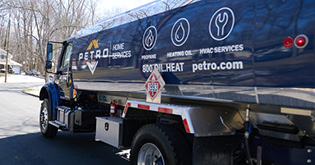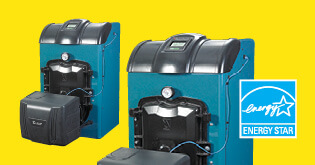- My Account:
- Sign In
- Register
- Make Payment

Tankless hot water heaters vs Tank storage water heaters.
Water heaters can be a costly investment for home owners that you’ll be living with for over a decade. That’s why when it’s time to equip your new home, or replace your old water heater it’s important to consider cost, efficiency, and longevity of your new water heater. We’ve put together this comparison of storage water heaters vs tankless water heaters to help homeowners and contractors decide on the type of water heater that’s best for you. We’ll examine the pros and cons of tankless and traditional water heaters so you can make an informed decision.
What Is a Tankless Water Heater?
Tankless water heaters, also known as on-demand water heaters, use high-powered burners to rapidly heat water as it runs through a heat exchanger and deliver it directly to your faucets or shower without storing it in a tank. Tankless water heaters are usually powered with electricity or gas. These types of water heaters were found to be 22 percent more energy efficient on average than the gas-fired storage-tank models in tests conducted by Consumer Reports.
How are “Traditional” Tank Storage Water Heaters Different?
Storage tank water heaters are commonly found in most homes. Their components are an insulated tank, typically holding 30-50 gallons of water, to heat and store the water until it’s needed. A pipe emerges from the top to deliver hot water to its destination, kitchen, bathroom, or other sinks.
Typically, there are storage-tank water heaters that use either natural gas or electricity for their fuel. Natural gas storage-tank water heaters use almost 50 percent less energy, costing less to operate, than the electric variety. However, they cost a bit more than electric models. They also feature a temperature and pressure-release valve that opens when either temperature or pressure exceeds preset levels.
Tankless Water Heater Energy Efficiency
Homeowners with on-demand (tankless) water heaters that use less than 41 gallons or less of hot water each day, enjoy between 24 and 34 percent more energy efficiency than storage tank water heaters. If you use lots of hot water daily (around 86 gallons), you might enjoy energy efficiency of an additional 8 to 14 percent.
Purchasing a tankless water heater will cost you a bit more than a traditional storage tank water heater, but, tankless varieties las longer than conventional water heater models which translates to a 20+-year useful life, as compared to storage tank types which last only 10 to 15 years before self-destructing, possibly flooding your basement or home, depending on their location If you want to “hit a home run,” install a tankless water heater at each hot water outlet. Why? You may receive energy savings of 27 to 50 percent if you put on-demand water heaters at all hot water outlets in your home.

Pros & Cons of Tankless Water Heaters
Since there are no perfect products (tankless water heaters are no exceptions), there are good points and downsides to on-demand water heaters, too.
Tankless Water Heater Advantages:
- Saves you money over time.
- According to Energy.gov, “For homes that use 41 gallons or less of hot water daily, demand (or tankless) water heaters can be 24% to 34% more energy efficient than conventional storage tank water heaters.” Tankless water heaters (if gas-fired) will save homeowners over $100 annually the longer they remain in service. Electric tankless water heaters still save homeowners around $44 per year according to the US Department of Energy.
- Longer useful lives than storage tank water heaters.
- Tankless water heaters typically last 20 to 30 years, double the forecasted useful life of a storage tank water heater. Be aware that “hard water” areas, may reduce the useful life of both types of water heaters.
- Does not consume the space of a storage tank water heater.
- On-demand water heaters are small and may be installed in “tight quarters.” They can even be installed on outside walls if your home is terminally space-challenged.
- You’ll have hot water whenever you need it.
- You won’t have to wait even 15 to 25 seconds for your water to become hot, as tankless water heaters deliver two to three gallons of hot water per minute. Many storage tank water heaters take longer to heat water, because of the larger volume of water they must heat, than most tankless types.
Drawbacks of Tankless Water Heaters:
- Higher purchase cost than storage tank water heaters.
- Tankless water heater installation can be costly if you’re replacing a storage tank water heater with a tankless-type water heater

- When you choose to retrofit a tankless water heater in place of a storage tank variety, your plumber-installer will take more time, increasing the installed cost, of replacing a storage tank water heater because of the complexity of relocating existing piping.
- They can be “output challenged.”
- Simultaneously taking showers and doing laundry can cause your tankless water heater to fail to keep up with the hot water demand on it. If you have multiple showers in use in your home, you often will have one of the shower-takers endure a “chilly” experience.
Pros & Cons of Storage Tank Water Heaters
(Tank) Water Heater Advantages:
- Storage tank water heaters have lower initial cost by a significant margin.
- Storage tank water heaters operate simpler than tankless varieties, resulting in less costly maintenance and repairs.
- Their simplicity makes for easy, low-cost repairs when these water heaters are not functioning properly. Tankless water heaters are more complex and expensive to repair and, obviously, replace.
Drawbacks of Storage (Tank) Water Heaters:
- Somewhat higher utility bills.
- Since storage tank water heaters heat, then reheat water to pre-set temperature, irrespective of what your hot water needs happen to be, they increase your utility bills. If these water heaters function in a cool environment (location), they’ll work harder in the winter months, driving your gas or electric bills even higher during the cold winter.
- Occupy more space because of their size than on-demand water heaters.
- if your home is space-restricted, you’ll have challenges finding enough area to locate storage tank water heaters. Also, they cannot be located outside your home like tankless water heaters.
- You don’t want to be the last family member to take a shower.
- If you have a typical home water heater, you might want to get a larger one if you often have multiple showers taken. While this option may relieve the hot water shortage, but your energy bills will increase along with your hot water availability. Average storage tank water heaters can only support three showers in a row. You won’t like being the fourth shower-taker unless you prefer chilly, not hot, showers
- Need to be replaced more often than tankless water heaters.
- Since storage tank types have a shorter useful life (about ½ the life of on-demand water heaters), typically 10 to 15 years, you may need to buy and install them almost twice as often as tankless water heaters, reducing your purchase savings.

Summary
If your bank account can manage the higher initial cost of a tankless water heater, you’ll save more money over time by choosing tankless. But, if you are on a fixed modest income, a storage tank water heater might make more sense for you. Discuss the two types of water heaters with your plumber to weigh your options.
Now that you know the “good, bad, and the ugly” of both primary water heater options, you might want to call a top firm, like Petro Home Services (1-888-735-5651), to help you decide on the type, size, and brands of water heater you should consider.
When you want help navigating the often confusing waters (no pun intended) of making the best choice of water heater for your home, you’ll be pleased you contacted the professionals at Petro Home Services today. Why wait? Petro professionals will give you the objective information you need to make the right choice for you and your family.
Related Links
- Hot water heater not working?
- When is it time to replace your water heater?
- Tank And Tankless Hot Water Heaters
Petro Home Services is proud to not only serve communities in DC, CT, MA, MD, NJ, NY, PA, and RI but we also proudly acknowledge the skills and experience of our expert team behind all resources. With insights on topics ranging from heating oil facts to common air conditioning questions, you can rely on Petro Home Services for facts and information to help you understand more about your heating, cooling and home comfort needs. This article and all articles on the Petro Home Services website have been approved by our team of home service experts.






